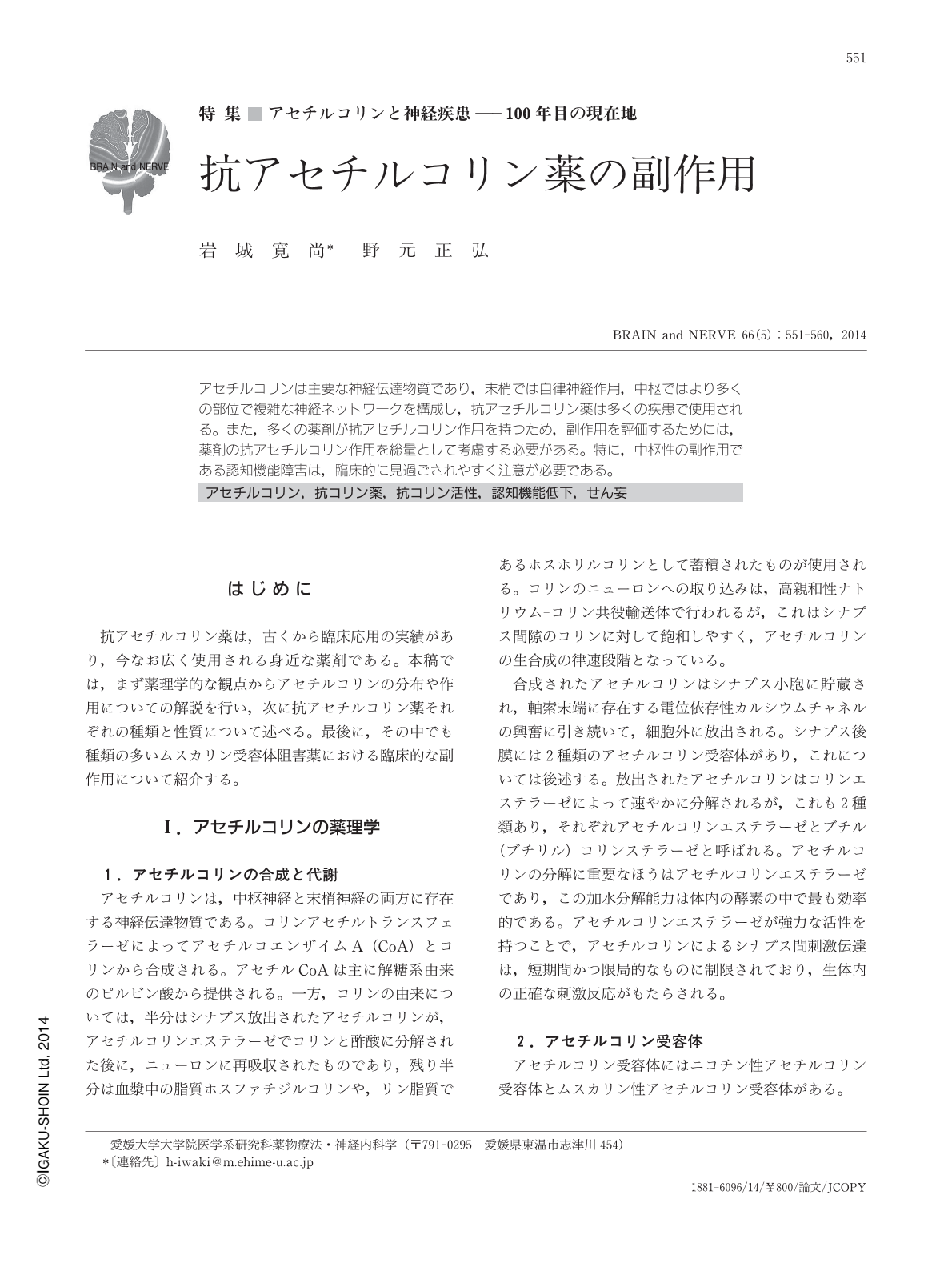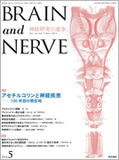Japanese
English
- 有料閲覧
- Abstract 文献概要
- 1ページ目 Look Inside
- 参考文献 Reference
アセチルコリンは主要な神経伝達物質であり,末梢では自律神経作用,中枢ではより多くの部位で複雑な神経ネットワークを構成し,抗アセチルコリン薬は多くの疾患で使用される。また,多くの薬剤が抗アセチルコリン作用を持つため,副作用を評価するためには,薬剤の抗アセチルコリン作用を総量として考慮する必要がある。特に,中枢性の副作用である認知機能障害は,臨床的に見過ごされやすく注意が必要である。
Abstract
Acetylcholine is one of the main neurotransmitters. It is involved in autonomic activities of the peripheral organs and forms a part of complicated neural networks in the central nervous system. Anticholinergic drugs are used in the treatment of various diseases, and many drugs have anticholinergic side effects. Thus, estimating the total burden of anticholinergic activity of drugs is important to assess the related adverse effects for patients taking such drugs. Serum anticholinergic activity (SAA) is measured using a competitive radioreceptor binding assay of muscarinic receptors. In addition to this direct measurement, several drug scales like the Anticholinergic Drug Scale (ADS), Anticholinergic Cognitive Burden Scale (ACB), and Anticholinergic Risk Scale (ARS) have been developed to estimate the total anticholinergic burden of drugs. These measurements have been used to demonstrate that certain drugs may be responsible for the cognitive impairment in the elderly or certain groups of patients with neurologic disorders. Clinicians should be aware of the impact of such drugs because central adverse effects are often obscure in these patient groups and are easily overlooked.

Copyright © 2014, Igaku-Shoin Ltd. All rights reserved.


